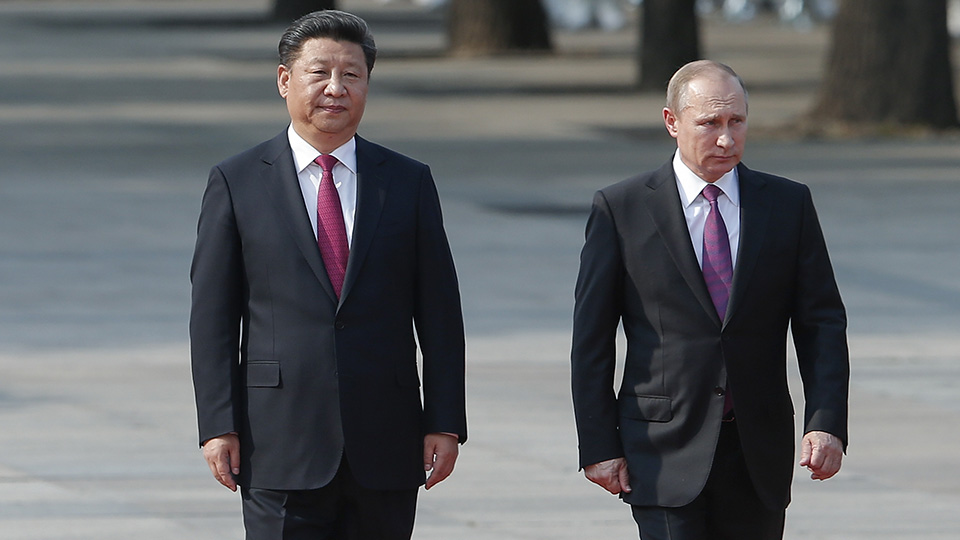China sits on a precipice that is defining what Chinese international leadership means. Although Vladimir Putin started the war in Ukraine — and only he can end it — Chinese leader Xi Jinping can shape how soon and the terms on which Putin ends this war.
How should we interpret China’s silence?
Pundits differ on whether China’s abstention in the United Nations Security Council vote of Feb. 26 demanding that Moscow immediately stop its attack on Ukraine was a subtle rebuke of Putin’s war. China certainly did not take Putin’s side in the vote. Yet China often abstains in Security Council votes, preferring to neither criticize other governments nor block collective action.
What does silence mean?
In 1990, when Saddam Hussein justified his invasion of Kuwait in the same terms that Putin has justified his invasion of Ukraine, China was equally silent. At the time, Western journalists openly criticized U.S. diplomat April Gillespie for signaling and perhaps even encouraging the invasion by implying that the U.S. would not contest Saddam’s claiming of Kuwait. Historians think that Gillespie got a bum rap. She certainly did not go so far as signaling that Saddam Hussein had valid grievances. Nor did the U.S. issue a joint statement pledging support for Iraq, as China has done for Russia.
But that was 1990. In 2020, Chinese silence is so deafening precisely because Chinese leaders have been loudly espousing an ideology that unlike the U.S., China will be a benign, responsible world leader. The sincerity of Chinese statements is being shredded before our very eyes, and Chinese leaders do not appear to care.
China’s leader speaks through mantras that both Chinese scholars and acolytes then echo. Foreign Minister Wang Yi has declared China’s unwavering respect for international law, noting that “upholding international rule of law is a momentous choice China has made based on its own experience.” He asserted that China does not break international law, and that “China ardently hopes for the rule of law in international relations against hegemony and power politics, and rules-based equity and justice, and hopes that the humiliation and sufferings it was subjected to will not happen to others.”
The “Community” vision
Xi’s regime has issued numerous Russian and China joint statements, including a joint statement specifically focused on international law that identified the UN Charter, the General Assembly’s 1970 Declaration on Principles of International Law concerning Friendly Relations and Cooperation among States and the Five Principles of Peaceful Co-existence as the “cornerstone for just and equitable international relations featuring win-win cooperation, creating a community of shared future for mankind, and establishing common space of equal and indivisible security and economic cooperation.”
China has also been articulating a positive leadership vision of a Community of Shared Future for Mankind. The “Community” vision is designed to contrast with the U.S. wars in Iraq and Afghanistan and Trump’s America First strategy by signaling support for interdependence to reassure markets, for inter-civilizational dialogue, peace, security, ecology and the right to development.
International relations scholars are generally skeptical that lofty ideals actually guide how states behave. International relations scholars focus instead on the resurgence of China’s Tianxia, the “all under heaven” philosophy. Given that Tianxia (天下) was first articulated in a very different international context, there are a lot of questions about what Tianxia guided foreign policy might mean today. The optimistic Tianxia vision is Chinese philosopher Zhao Tingyang’s ideal of an “all inclusive world with harmony for all.” The pessimistic vision is a new Chinese hegemony, where China’s superior position must be implicitly if not explicitly recognized.
Watch for an escape hatch
Here is what we should be watching in the coming days and weeks. Does China insist, privately if not publicly, that Putin stop his attack on Ukraine in favor of a peacefully negotiated end to hostilities? If Putin stops before a full destruction of Kyiv and other Ukrainian cities, this may be evidence of a Chinese nudge.
Does China open an escape hatch that undermines Western sanctions? Early indications were that China might open the escape hatch that abets Putin’s land grab, or his domineering punishment of Ukraine for choosing a Western way of life. China has agreed to import more wheat and oil, two primary Russian exports that provide important sources of cash for Russia. But would China go so far as to back Russian demands that future international agreements, such as the Iran Nuclear Deal, disallow or circumvent international sanctions? Will China give or sell Russia arms for Ukraine as a way to balance the arms that Western countries are providing?
If China opens an escape hatch, then the very targets of Chinese ideology should worry about the so-called Shared Future for Mankind. China is an avowed fan of “win-win” international agreements and leading through multilateralism. Is China’s leadership vision really one of great power hegemony, replicating the very practices China has long condemned, where not all states are actually considered sovereign equals? If Putin’s war continues to Putin’s desired completion, we will have our answer.
Karen J. Alter is the Norman Dwight Harris Professor of International Relations at Northwestern and co-chair of the Global Capitalism and Law Research Group.


